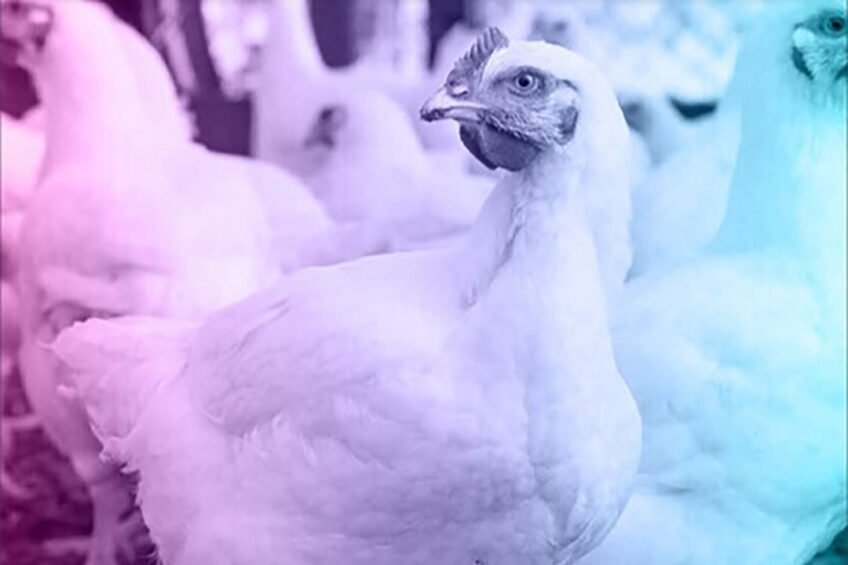Global companies failing to deliver on animal welfare commitments

Firms are taking too long to make meaningful welfare improvements to their poultry, pigs and dairy cows, despite widespread commitments, according to the 10th annual Business Benchmark on Farm Animal Welfare (BBFAW) report.
Companies are continuing to invest but change is too slow, noted the report, which is designed to help drive higher farm animal welfare standards and provide a benchmark to inform investor choices.
The report analysed 150 global food companies, including 62 producers and manufacturers, 53 wholesalers and retailers, and 35 restaurants and bars. Of these, 134 companies (89%) now acknowledge farm animal welfare as a business issue – compared to 71% of the 68 companies evaluated in the first study in 2012.
Meanwhile, 122 companies (81%) have formal policies on farm animal welfare (compared to 46% in 2012) and 119 firms have published formal objectives and targets for animal welfare compared to just 26% of companies in 2012.
But a greater focus this year on companies’ Performance Reporting & Impact – through increasing the weighting of this section from 35-45% of the total score available and ranking companies A to F on the 10 performance impact questions – led to many companies falling back.
Noble Foods and Premier Foods bucking the trend
Two that bucked the trend were the UK’s largest free-range egg company, Noble Foods, and Premier Foods, which both gained a ‘B’ impact rating (indicating that the companies have scored between 62 and 80%) on the Performance Reporting & Impact section of the benchmark. None achieved an A rating, highlighting the stark disconnect between many companies’ animal welfare commitments and the subsequent impact on farm animal welfare in their supply chains.
Premier Foods: Transport, confinement, and environmental enrichment
Given the scale of the changes introduced in 2021, Premier Foods, which moved up a tier to Tier 1, was praised for publishing more detailed objectives such as avoiding long-distance transport, the close confinement of livestock, and the provision of environmental enrichment. The company also demonstrates multiple examples of promoting farm animal welfare to consumers.
Noble Foods said in a statement on social media, “Animal welfare is extremely important to us, and the recognition underlines the hard work and results our teams have been able to achieve. The Benchmark has also encouraged real transparency in the industry since its introduction in 2012 and we’re proud to lead by example for the UK poultry industry.”
It added that the company was proud to have retained its top tier status for the 4th consecutive year and was 1 of only 4 firms (Marks and Spencer, Waitrose and Partners and Premier Foods) to have achieved tier 1 status following the methodology changes.
Among other poultry businesses, 2 Sisters Food Group, Perdue Farms and Charoen Pokphand Foods retained their Tier 3 status. Tyson Foods moved down a tier to tier 4 and Sanderson Farms were unchanged in tier 5.
Animals free from close confinement
Reporting on the proportion of animals free from close confinement (across laying hens, broiler chickens, pigs and dairy cattle) remains the highest reported topic, with 100 companies (67%) reporting at least some data (65% in 2020). However, most of the performance reporting on this topic remains limited to specified countries, species, or product lines, with only 7 companies (5%) providing universal data.
Other findings were that:
- 49 companies (33%) report some data on the proportion of animals transported in 8 hours or less (29% in 2020), with only 8 companies (5%) providing universal data.
- 42 companies (28%) report welfare outcome measures for specific species (e.g., lameness rates in pigs, feather cover in laying hens, and sea lice infection rates in farmed fish) (23% in 2020). Given the importance of welfare outcome measures for evaluating the performance of farm animal welfare systems and practices, this issue remains significantly under-reported with 108 companies reporting no data at all.
- 39 companies (26%) report some data on the proportion of animals provided with species-specific enrichment (22% in 2020), with only 4 companies (3%) providing universal data.
Philip Lymberry, Compassion in World Farming CEO, added that it was disappointing that policy commitments were not delivering meaningful improvements for animals as quickly as they should: “Our focus now must be on ensuring that companies across the globe really do drive forward and deliver substantial and measurable welfare improvements for farm animals.
“This means making significant progress in their supply chains, for example, moving away from keeping animals in confinement systems such as cages and crates, and towards more humane and sustainable husbandry practices, to help create a food system that works for animals, people and the planet.”













